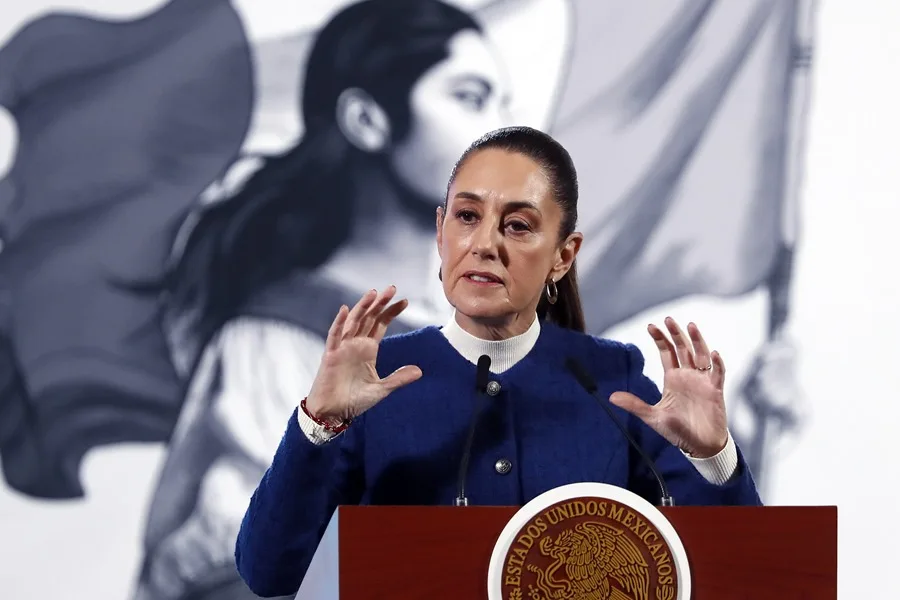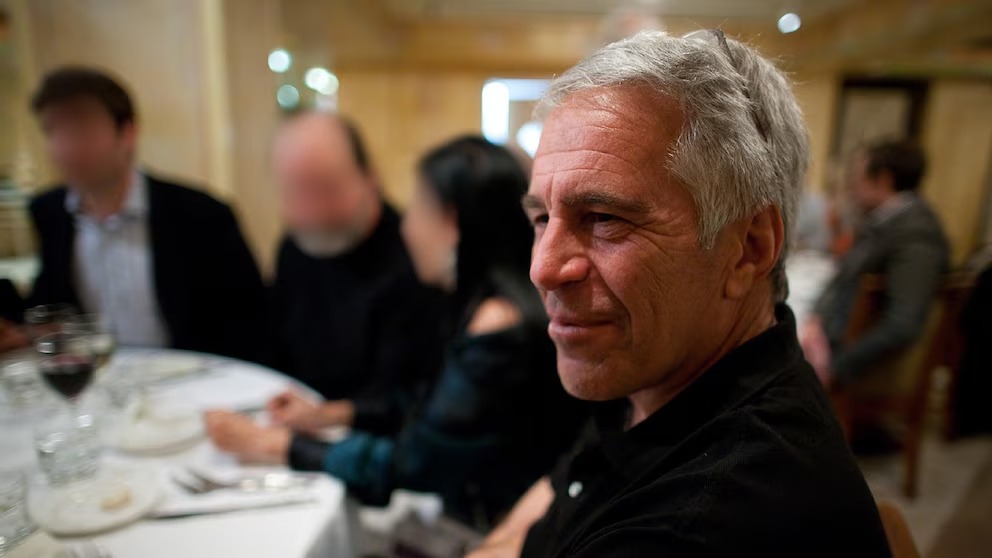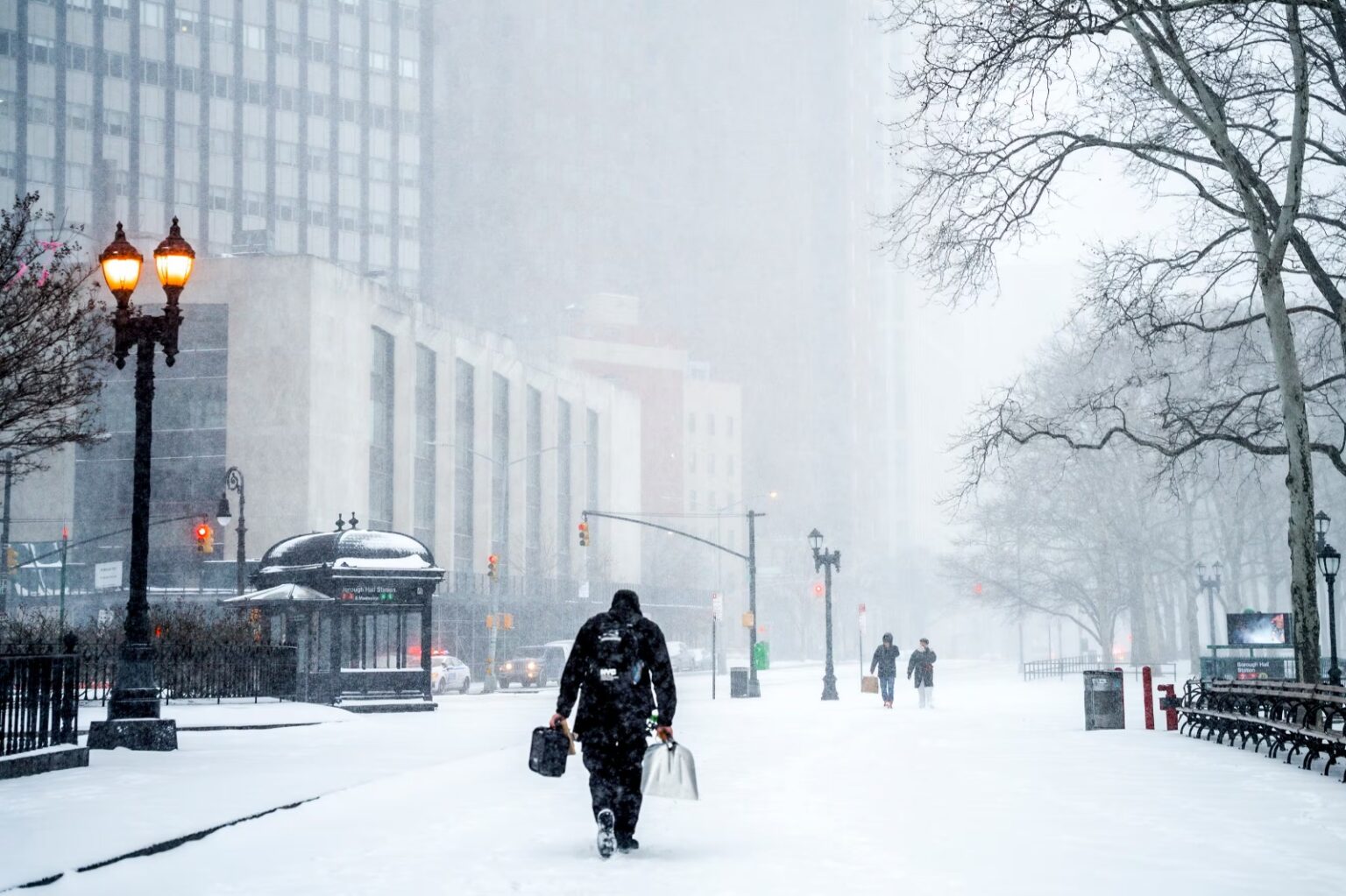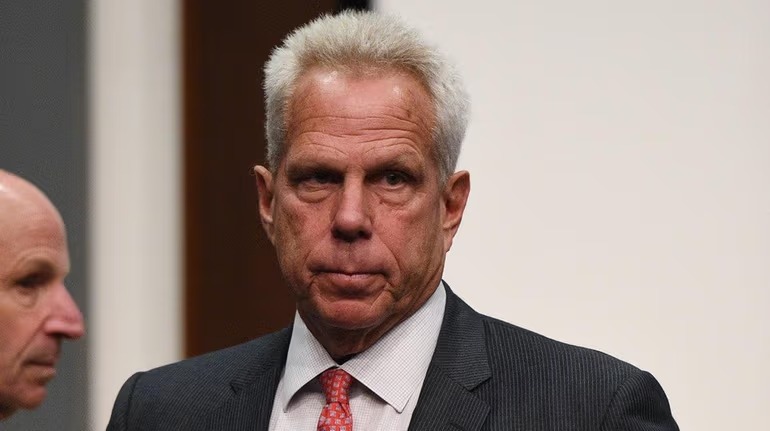International
A candidate for the Supreme Court denounces an unequal dispute in the judicial election of Mexico

Carlos Enrique Odriozola has no party or structure. Nor does it enjoy reflectors or previous positions in the Judiciary. And yet, he competes for a chair in the Supreme Court of Justice of the Nation (SCJN) of Mexico in an unprecedented electoral process that, he assures, is unequal and is marked by citizen apathy.
“There is no even floor, we are not all starting from the same base,” he says in an interview with EFE about the campaigns to seek the vote that began on March 30.
He assures that there are candidates who arrive at the historic judicial election in Mexico with an armed network, with resources, with exposure, while competitors like him just now take to the streets to present themselves to the people.
The lawyer has been litigating in courts and tribunals throughout Mexico for 30 years, also before the Court.
To his credit, he says, he has at least 40 theses of jurisprudence on human rights issues, obtained through strategic litigation.
His motivation for reaching the highest court in the country is that “the Supreme Court has the possibility of permeating the entire judicial raming. From there you can achieve a real impact on people’s lives.”
Odriozola recognizes the value of the judicial reform that for the first time will allow 3,422 citizens, on June 1, to compete in elections for one of the 881 positions in courts, tribunals, the new Court of Judicial Discipline, the Electoral Tribunal and the Supreme Court, but also points out the vices.
“Some candidates could feel like puppets of a simulation. Possibly because we are candidates who have no structure. If they chose us so that people can get to know us and can value who is really willing to make a change and if people vote for us, it may be that that change is possible,” he says.
The candidate, who will identify himself with the number 57 on the ballots in the judicial election of Mexico, remembers having filed a formal complaint with the National Electoral Institute (INE) so that the participations are not so unequal, but has not yet received a response.
Odriozola details that he continues his campaign without paying for campaigns on networks and with limited presence in Mexico City until May, the last 28 days of his campaign, when he will go out to tour the country.
“We are going to 15% of the campaign (spending) ceiling,” he confesses. “Because we haven’t traveled much either and we plan to do it from May, especially with the friendly invitations that they have already started to make us in some entities,” he adds.
In addition to the imbalance between candidacies, Odriozola faces another challenge: the indifference of the electorate to a historic moment.
“I see people with a lot of discouragement. They don’t have confidence in the process, in the generality of people. There is not enough information or even understanding of what is being voted on, despite its importance,” he acknowledges.
His call is direct: “Not participating is handing over the Court to the structures.”
“Regomidde the fact that one can agree with the process, it is the process that exists and it is the only way that citizens have today to get to court,” he adds.
Odriozola proposes to integrate his presentation with a team selected by public competition, with gender parity, inclusive approach and respect for human rights.
“I want to make my presentation a microcosm of very prepared lawyers, very conscious, with a lot of social awareness,” he says.
It also proposes to effectively monitor jurisprudence and ensure that judgments are not only understood, but that they are executed.
He claims not to want “paper judgments”, that the treatment with the parties involved is equal, so he proposes to receive all equally and avoid “selective ear” pleas and so that “they can leave with the certainty” that “their evidence was evaluated.”
And in front of the new Judicial Discipline Court, he says not to be afraid.
“Since I am not going to commit acts of corruption and I am only going to proceed with all probity, I am not pressured or impressed by the existence of that court,” he concludes.
International
Epstein Denies Being ‘the Devil’ in Newly Released Video Interview

Jeffrey Epstein claims he was the least dangerous type of sex offender and denied being “the devil” in a video interview included in the latest batch of documents released over the weekend by the U.S. Department of Justice.
The roughly two-hour interview was conducted by Steve Bannon, a former adviser to U.S. President Donald Trump, and appears to have been recorded at the late financier’s New York residence on an unknown date.
Epstein died by suicide in 2019 while in jail awaiting trial on sex trafficking charges involving minors. Since December, the U.S. government has released millions of documents related to the case under transparency laws.
“Do you think you’re the devil incarnate?” Bannon asks Epstein in the video interview revealed in the latest release.
“No, but I do have a good mirror,” Epstein replies with a smile, wearing a black shirt and glasses. When pressed again, he adds, “I don’t know. Why would you say that?”
Epstein, who pleaded guilty in 2008 to soliciting a minor for prostitution, also appears to downplay the seriousness of his conviction.
He objects when Bannon refers to him as a “Level Three sexual predator,” a classification in the United States indicating a very serious threat to public safety.
“No, I’m the lowest,” Epstein says.
“But still an offender,” Bannon responds.
“Yes,” Epstein replies.
The exchange comes after Bannon asks Epstein whether he considers his wealth to be “dirty,” suggesting it was earned by advising “the worst people in the world.”
Epstein insists that he made his money legally, while acknowledging that “ethics is always a complicated issue.”
He claims he donated money to help eradicate polio in Pakistan and India, apparently in an attempt to justify the origins of his fortune.
The documents also show that Bannon maintained regular correspondence with Epstein, who offered to help the far-right political figure spread his conservative ideology in Europe.
Since Trump took office in January 2025, U.S. authorities have released millions of pages related to Epstein, along with photos and videos.
These materials have shed new light on Epstein’s ties to high-profile business executives such as Microsoft co-founder Bill Gates, celebrities including filmmaker Woody Allen, and academics and political figures, among them Trump and former President Bill Clinton.
International
Hypothermia Linked to Most Deaths During New York’s Recent Cold Spell

Hypothermia “played a role” in 13 of the 16 deaths recorded in New York City during the recent period of extreme cold, Mayor Mandami said at a press conference. Three of the deaths were classified as drug overdoses.
None of the individuals were sleeping on the streets at the time of their deaths, the mayor added, noting that some had previously been in contact with emergency shelter services.
Mandami said the city has activated emergency warming centers and deployed a fleet of 20 vehicles staffed with medical personnel to respond to the cold weather crisis.
“As of this morning, we have made more than 930 referrals to shelters and safe facilities. We have also involuntarily transported 18 New Yorkers who were deemed a danger to themselves or others,” he said.
According to official statistics, New York City recorded between nine and 27 cold-related deaths per year from 2005 to 2021. That number rose to 34 in 2021 and climbed further to 54 in 2022.
City Comptroller Mark Levine estimated that there are “tens of thousands” of homeless New Yorkers, “most of them families with children.”
He said that “nearly 95%” of the city’s homeless population lives in municipal shelters.
In August 2021, those shelters housed 44,586 people, the “lowest daily population in nearly a decade,” according to official data.
However, the shelter population increased from 22,955 to 62,679 people between January 2000 and January 2020, highlighting the long-term growth of homelessness in the city.
International
NFL Investigating Emails Linking Giants Executive to Jeffrey Epstein

NFL Commissioner Roger Goodell said on Monday that the league will “examine all the facts” regarding contacts between New York Giants co-owner Steve Tisch and Jeffrey Epstein, revealed in documents recently released about the late convicted sex offender.
The batch of files, made public on Friday by the U.S. Department of Justice, includes emails suggesting that Epstein introduced several women to Tisch.
Tisch, a film producer who has never been charged in connection with Epstein, issued a statement last week denying any wrongdoing.
“I had a brief relationship in which we exchanged emails about adult women, and we also discussed film, philanthropy, and investments,” Tisch said of his correspondence with Epstein, which dates back to 2013.
“I did not accept any of his invitations and never went to his island. As we all now know, he was a terrible person and someone I deeply regret having associated with,” he added.
Speaking at a press conference in San Jose, California, on Monday, Goodell said the NFL would carefully review the details of the ties between Tisch and Epstein.
“We’re going to examine all the facts,” the commissioner said. “We’re going to look at the context of those exchanges, try to understand them, and see how that fits within the league’s policies.”
Tisch, 76, could face disciplinary action under the NFL’s strict personal conduct policy, even if he is not found guilty of a crime.
“We’re going to take this step by step. First, let’s gather all the facts,” Goodell said at the press conference, which was part of the events leading up to Sunday’s Super Bowl between the Seattle Seahawks and the New England Patriots.
-

 Central America4 days ago
Central America4 days agoPanama Supreme Court Strikes Down Panama Ports Concession as Unconstitutional
-

 Central America4 days ago
Central America4 days agoU.S. and Guatemala Sign Trade Deal Granting Zero Tariffs to Most Exports
-

 International5 hours ago
International5 hours agoSpain Seeks to Ban Social Media Access for Children Under 16
-

 International5 hours ago
International5 hours agoMexico to Send Humanitarian Aid to Cuba Amid U.S. Threats Over Oil Shipments
-

 International4 hours ago
International4 hours agoHypothermia Linked to Most Deaths During New York’s Recent Cold Spell
-

 Central America2 days ago
Central America2 days agoCosta Rica Goes to the Polls as Voters Choose Continuity or Change
-

 International5 hours ago
International5 hours agoPetro Resumes Extraditions, Sends Top Criminal to U.S. Before White House Talks
-

 International4 hours ago
International4 hours agoEpstein Denies Being ‘the Devil’ in Newly Released Video Interview
-

 Central America5 hours ago
Central America5 hours agoLaura Fernández Says She Will ‘Never’ Allow Authoritarianism in Costa Rica
-

 International5 hours ago
International5 hours agoMexico Arrests Suspect in Shooting of Sinaloa Lawmakers
-

 International5 hours ago
International5 hours agoNFL Investigating Emails Linking Giants Executive to Jeffrey Epstein


























